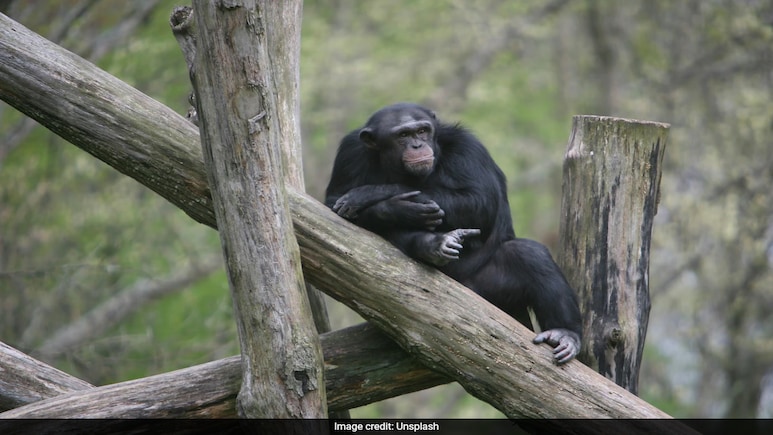
A groundbreaking study revealed that wild chimpanzees are unknowingly consuming the equivalent of about two cocktails' worth of alcohol daily by feasting on naturally fermented fruits. Researchers observed chimps in Uganda's Kibale National Park and the Ivory Coast's Tai National Park, finding they ingest around 14 grams of ethanol daily, comparable to humans having two standard drinks.
Chimps consume ripe fruits that undergo natural fermentation by yeasts, producing ethanol. According to the researchers, the fruits tested had average ethanol concentrations of 0.3% by weight, with some reaching up to 0.61% Alcohol by Volume (ABV).
Also Read | As Nano Banana Trends Go Viral, Here's What Gemini Says On Safety
There were concerns that there might be hordes of drunken chimps in the region, but the study revealed that chimps showed no obvious signs of drunkenness, likely due to spread-out eating patterns. Observations in Guinea-Bissau showed chimps sharing fermented fruits, possibly strengthening social bonds.
Aleksey Maro, a doctoral student in the Department of Integrative Biology at the University of California, Berkeley, and his colleagues collected fruits from two locations and tried to assess how much ethanol chimps actually consume.
"It's difficult to say how much consuming this amount of dietary alcohol would affect the behavior of chimpanzees," said Maro, who is the lead author of the study published on Wednesday in the journal Science Advances.
"We know that just the presence of a lot of ripe fruit can affect things like how often they go on territorial patrols and hunts. And the estrous cycle of female chimpanzees, when they are fertile, is timed around when large amounts of food are available. It's possible ethanol could play a role in some of these diet-related dynamics, especially when they're able to consume large volumes of fruit quickly," Maro said.
Also Read | US Man Collapses In Restaurant, Dies After Staff Dump Him Outside Thinking He's Homeless
The research supports the "Drunken Monkey" hypothesis, which is an idea that means humans' attraction to alcohol might have evolutionary roots tied to primate ancestors seeking ripe, energy-rich fruits.
When it comes to evolutionary adaptation, humans and great apes share genetic mutations enhancing alcohol metabolism, suggesting ancient exposure. Also, sharing fermented fruits might mirror human traditions of communal feasting and social drinking.
"Our findings imply that our ancestors were similarly chronically exposed to dietary alcohol," he says. "The drunken monkey hypothesis suggests that this exposure caused our species to evolve an association between alcohol consumption and the reward of finding fruit sugars, and explains human attraction to alcohol today."
Maro also collected urine samples from beneath chimpanzees, while protecting himself with an umbrella, to measure the alcohol percentage in chimps.
Track Latest News Live on NDTV.com and get news updates from India and around the world

